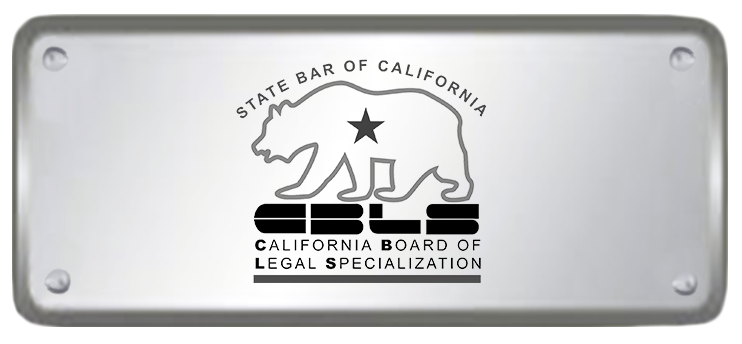TRUST LITIGATION IN CALIFORNIA
Trust litigation in California refers to legal disputes that arise in connection with trusts. Trusts are legal instruments that allow individuals to transfer assets to be managed and distributed for the benefit of designated beneficiaries. While trusts are intended to facilitate the smooth transfer of assets, disputes can arise due to various reasons. Our experienced team of trust and estate litigation attorneys at Antonyan Miranda can significantly increase your chances of achieving a favorable outcome in your case. They can guide you through the complex legal process, protect your interests, and provide you with the necessary support and advocacy throughout the litigation.
What Kind of Disputes are Handled in the California Trust Litigation Process?
In California, trust litigation can encompass a wide range of issues, such as disputes over the interpretation of trust provisions, breach of fiduciary duty by trustees, contested trust modifications or terminations, challenges to the validity of a trust, and allegations of financial mismanagement or fraud. Trust litigation typically involves multiple parties, including the trustee (the person or entity responsible for administering the trust), beneficiaries (those who have a vested interest in the trust assets), and potentially other interested parties.
What are the Grounds for Trust Litigation in California?
It is important to note that the below listed grounds for trust litigation are not exhaustive, and each case is unique. Trust litigation can be complex, involving detailed legal analysis and factual considerations. Consulting with the trust litigation attorneys at Antonyan Miranda is crucial to assess the specific circumstances and determine the appropriate legal strategies for your case.
BREACH OF FIDUCIARY DUTY:
Trustees have a legal duty to act in the best interests of the trust and its beneficiaries. If a trustee fails to fulfill their fiduciary obligations, such as mismanaging trust assets, self-dealing, or making decisions that benefit themselves at the expense of the beneficiaries, it can give rise to trust litigation.
LACK OF CAPACITY OR UNDUE INFLUENCE:
Trust litigation may occur when there are allegations that the person who created the trust (the settlor) lacked the mental capacity to understand the implications of creating the trust or was unduly influenced by someone else. If the trust’s validity is challenged based on these grounds, it can lead to litigation.
TRUST CONTEST OR CONSTRUCTION:
Disputes may arise when beneficiaries or interested parties disagree on the interpretation or validity of specific provisions within the trust document. This can involve questions regarding the settlor’s intentions, the scope of beneficiary rights, or the distribution of trust assets. Trust contests or construction actions seek to resolve these disputes through litigation.
REMOVAL OR SUSPENSION OF TRUSTEE:
If a trustee is not properly fulfilling their duties or is engaged in misconduct, beneficiaries or interested parties can initiate trust litigation seeking the removal or suspension of the trustee. This can be due to conflicts of interest, mismanagement of assets, or other breaches of trust administration responsibilities.
ACCOUNTING AND MISMANAGEMENT:
Beneficiaries have the right to receive regular accounting statements detailing the trust’s financial transactions and administration. If there are concerns regarding the trustee’s management of trust assets, such as failure to provide proper accounting or misappropriation of funds, it can lead to trust litigation.
THEFT OF TRUST ASSETS:
Being a Trustee is a difficult job and often provides opportunities for malfeasance. If a Trustee has taken assets that belong to the trust and put them in their individual names, that individual has stolen assets that do not belong to them. This can occur through maliciousness or ignorant comingling of Trust assets with their personal assets. Litigation can arise over the nature and rightful owner of the asset and seek to have a civil theft claim sought against the Trustee.
MODIFICATION OR TERMINATION OF THE TRUST:
Trust litigation may arise when beneficiaries or interested parties seek to modify or terminate a trust. This could be due to changes in circumstances, disagreements among beneficiaries, or other reasons that warrant modifications or termination as permitted by California law.
TIME-SAVING:
Because mediation is performed outside of court, there is no need to wait months for hearing dates which may be subject to further delays or continuances. Mediators are usually much more flexible with their time, including a willingness to work evenings or weekends.
How Can an Attorney Help Me with Trust Administration in California?
The trust litigation attorneys at Antonyan Miranda can provide crucial assistance and support if you are involved in trust litigation in California. Here are some ways in which our law firm can help you:
LEGAL ADVICE AND STRATEGY:
Trust litigation can be complex, involving intricate legal issues and procedures. Our law firm specializing in trust litigation can provide you with expert legal advice based on their knowledge and experience in California trust law. We can assess the strengths and weaknesses of your case, help you understand your legal rights, and develop a strategic approach to achieve your desired outcome.
CASE EVALUATION AND INVESTIGATION:
Our law firm can evaluate the merits of your trust litigation case. They will thoroughly review the trust document, relevant legal documents, and any available evidence to assess the strengths and weaknesses of your claims or defenses. We can also conduct a comprehensive investigation, including gathering relevant documents, interviewing witnesses, and engaging experts if necessary, to build a strong case.
NEGOTIATION AND MEDIATION:
Trust litigation can be emotionally and financially draining. Our law firm can represent you in negotiations and mediation to explore potential settlements or resolutions. We can advocate for your interests, engage in constructive discussions with opposing parties or their attorneys, and work towards a favorable settlement that aligns with your goals.
COURT REPRESENTATION:
If settlement negotiations fail, trust litigation may proceed to court. Our law firm can provide skilled courtroom representation, presenting your case effectively before the judge or jury. They will prepare and file the necessary legal documents, present evidence, examine witnesses, and make persuasive arguments to support your position.
LEGAL RESEARCH AND ARGUMENTATION:
Trust litigation involves interpreting complex legal statutes, case law, and trust documents. Our law firm can conduct comprehensive legal research, ensuring that the applicable laws and precedents are properly analyzed and incorporated into your case strategy. We can develop strong legal arguments that support your position and counter opposing arguments.
RELIEF AND REMEDIES:
If successful in trust litigation, our law firm can help you obtain the relief and remedies you seek. This may include removal or replacement of a trustee, trust modification or termination, accounting of trust assets, distribution of trust assets, or any other appropriate remedies as determined by the court.
Trust litigation can be complex, involving detailed legal analysis and factual considerations. Consulting with the experienced trust litigation attorneys at Antonyan Miranda is crucial to assess the specific circumstances and determine the appropriate legal strategies for your case. We aggressively advocate for your interests at trial, using all available legal tools and strategies to help secure all that is important to you. Call us at 619-255-7744 to speak with one of our Concierge attorneys or visit us at www.expertprobatelaw.com for more information.
FOLLOW US!
TRUST LITIGATION IN CALIFORNIA
Trust litigation in California refers to legal disputes that arise in connection with trusts. Trusts are legal instruments that allow individuals to transfer assets to be managed and distributed for the benefit of designated beneficiaries. While trusts are intended to facilitate the smooth transfer of assets, disputes can arise due to various reasons. Our experienced team of trust and estate litigation attorneys at Antonyan Miranda can significantly increase your chances of achieving a favorable outcome in your case. They can guide you through the complex legal process, protect your interests, and provide you with the necessary support and advocacy throughout the litigation.
What Kind of Disputes are Handled in the California Trust Litigation Process?
In California, trust litigation can encompass a wide range of issues, such as disputes over the interpretation of trust provisions, breach of fiduciary duty by trustees, contested trust modifications or terminations, challenges to the validity of a trust, and allegations of financial mismanagement or fraud. Trust litigation typically involves multiple parties, including the trustee (the person or entity responsible for administering the trust), beneficiaries (those who have a vested interest in the trust assets), and potentially other interested parties.
What are the Grounds for Trust Litigation in California?
It is important to note that the below listed grounds for trust litigation are not exhaustive, and each case is unique. Trust litigation can be complex, involving detailed legal analysis and factual considerations. Consulting with the trust litigation attorneys at Antonyan Miranda is crucial to assess the specific circumstances and determine the appropriate legal strategies for your case.
BREACH OF FIDUCIARY DUTY:
Trustees have a legal duty to act in the best interests of the trust and its beneficiaries. If a trustee fails to fulfill their fiduciary obligations, such as mismanaging trust assets, self-dealing, or making decisions that benefit themselves at the expense of the beneficiaries, it can give rise to trust litigation.
LACK OF CAPACITY OR UNDUE INFLUENCE:
Trust litigation may occur when there are allegations that the person who created the trust (the settlor) lacked the mental capacity to understand the implications of creating the trust or was unduly influenced by someone else. If the trust’s validity is challenged based on these grounds, it can lead to litigation.
TRUST CONTEST OR CONSTRUCTION:
Disputes may arise when beneficiaries or interested parties disagree on the interpretation or validity of specific provisions within the trust document. This can involve questions regarding the settlor’s intentions, the scope of beneficiary rights, or the distribution of trust assets. Trust contests or construction actions seek to resolve these disputes through litigation.
REMOVAL OR SUPENSION OF TRUSTEE:
If a trustee is not properly fulfilling their duties or is engaged in misconduct, beneficiaries or interested parties can initiate trust litigation seeking the removal or suspension of the trustee. This can be due to conflicts of interest, mismanagement of assets, or other breaches of trust administration responsibilities.
ACCOUNTING AND MISMANAGEMENT:
Beneficiaries have the right to receive regular accounting statements detailing the trust’s financial transactions and administration. If there are concerns regarding the trustee’s management of trust assets, such as failure to provide proper accounting or misappropriation of funds, it can lead to trust litigation.
THEFT OF TRUST ASSETS:
Being a Trustee is a difficult job and often provides opportunities for malfeasance. If a Trustee has taken assets that belong to the trust and put them in their individual names, that individual has stolen assets that do not belong to them. This can occur through maliciousness or ignorant comingling of Trust assets with their personal assets. Litigation can arise over the nature and rightful owner of the asset and seek to have a civil theft claim sought against the Trustee.
MODIFICATION OR TERMINATION OF THE TRUST:
Trust litigation may arise when beneficiaries or interested parties seek to modify or terminate a trust. This could be due to changes in circumstances, disagreements among beneficiaries, or other reasons that warrant modifications or termination as permitted by California law.
TIME-SAVING:
Because mediation is performed outside of court, there is no need to wait months for hearing dates which may be subject to further delays or continuances. Mediators are usually much more flexible with their time, including a willingness to work evenings or weekends.
How Can an Attorney Help Me with Trust Administration in California?
The trust litigation attorneys at Antonyan Miranda can provide crucial assistance and support if you are involved in trust litigation in California. Here are some ways in which our law firm can help you:
LEGAL ADVICE AND STRATEGY:
Trust litigation can be complex, involving intricate legal issues and procedures. Our law firm specializing in trust litigation can provide you with expert legal advice based on their knowledge and experience in California trust law. We can assess the strengths and weaknesses of your case, help you understand your legal rights, and develop a strategic approach to achieve your desired outcome.
CASE EVALUATION AND INVESTIGATION:
Our law firm can evaluate the merits of your trust litigation case. They will thoroughly review the trust document, relevant legal documents, and any available evidence to assess the strengths and weaknesses of your claims or defenses. We can also conduct a comprehensive investigation, including gathering relevant documents, interviewing witnesses, and engaging experts if necessary, to build a strong case.
NEGOTIATION AND MEDIATION:
Trust litigation can be emotionally and financially draining. Our law firm can represent you in negotiations and mediation to explore potential settlements or resolutions. We can advocate for your interests, engage in constructive discussions with opposing parties or their attorneys, and work towards a favorable settlement that aligns with your goals.
COURT REPRESENTATION:
If settlement negotiations fail, trust litigation may proceed to court. Our law firm can provide skilled courtroom representation, presenting your case effectively before the judge or jury. They will prepare and file the necessary legal documents, present evidence, examine witnesses, and make persuasive arguments to support your position.
LEGAL RESEARCH AND ARGUMENTATION:
Trust litigation involves interpreting complex legal statutes, case law, and trust documents. Our law firm can conduct comprehensive legal research, ensuring that the applicable laws and precedents are properly analyzed and incorporated into your case strategy. We can develop strong legal arguments that support your position and counter opposing arguments.
RELIEF AND REMIDIES:
If successful in trust litigation, our law firm can help you obtain the relief and remedies you seek. This may include removal or replacement of a trustee, trust modification or termination, accounting of trust assets, distribution of trust assets, or any other appropriate remedies as determined by the court.
Trust litigation can be complex, involving detailed legal analysis and factual considerations. Consulting with the experienced trust litigation attorneys at Antonyan Miranda is crucial to assess the specific circumstances and determine the appropriate legal strategies for your case. We aggressively advocate for your interests at trial, using all available legal tools and strategies to help secure all that is important to you. Call us at 619-255-7744 to speak with one of our Concierge attorneys or visit us at www.expertprobatelaw.com for more information.





















